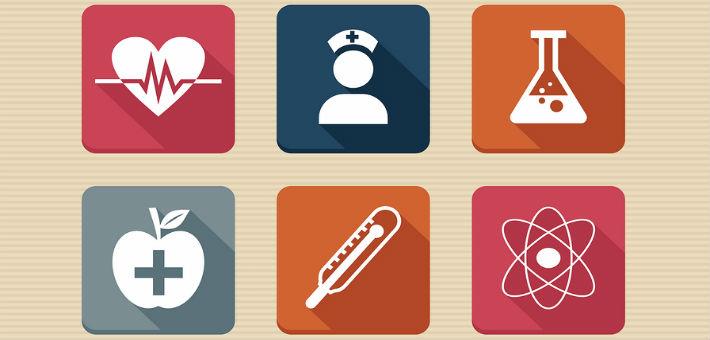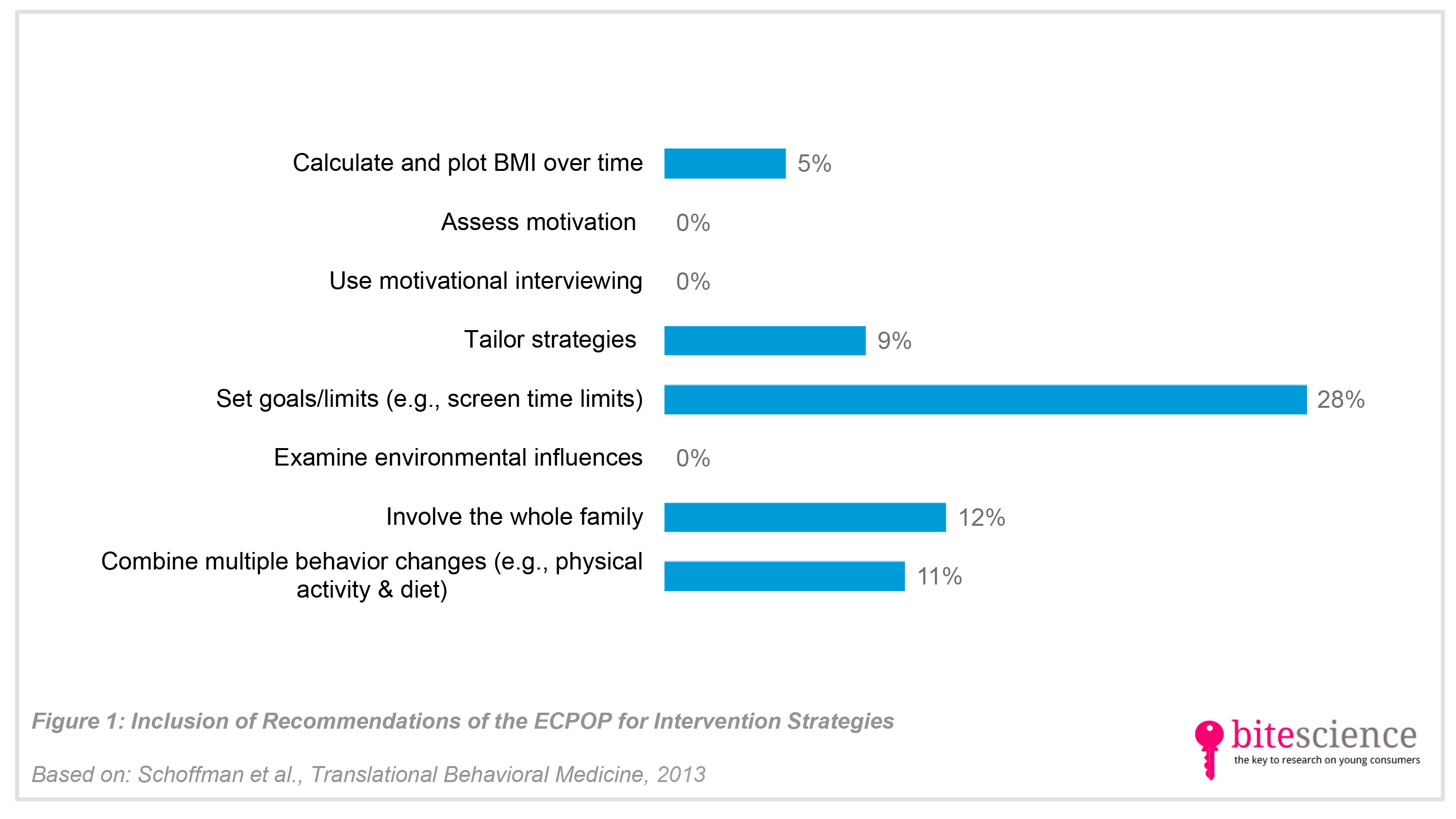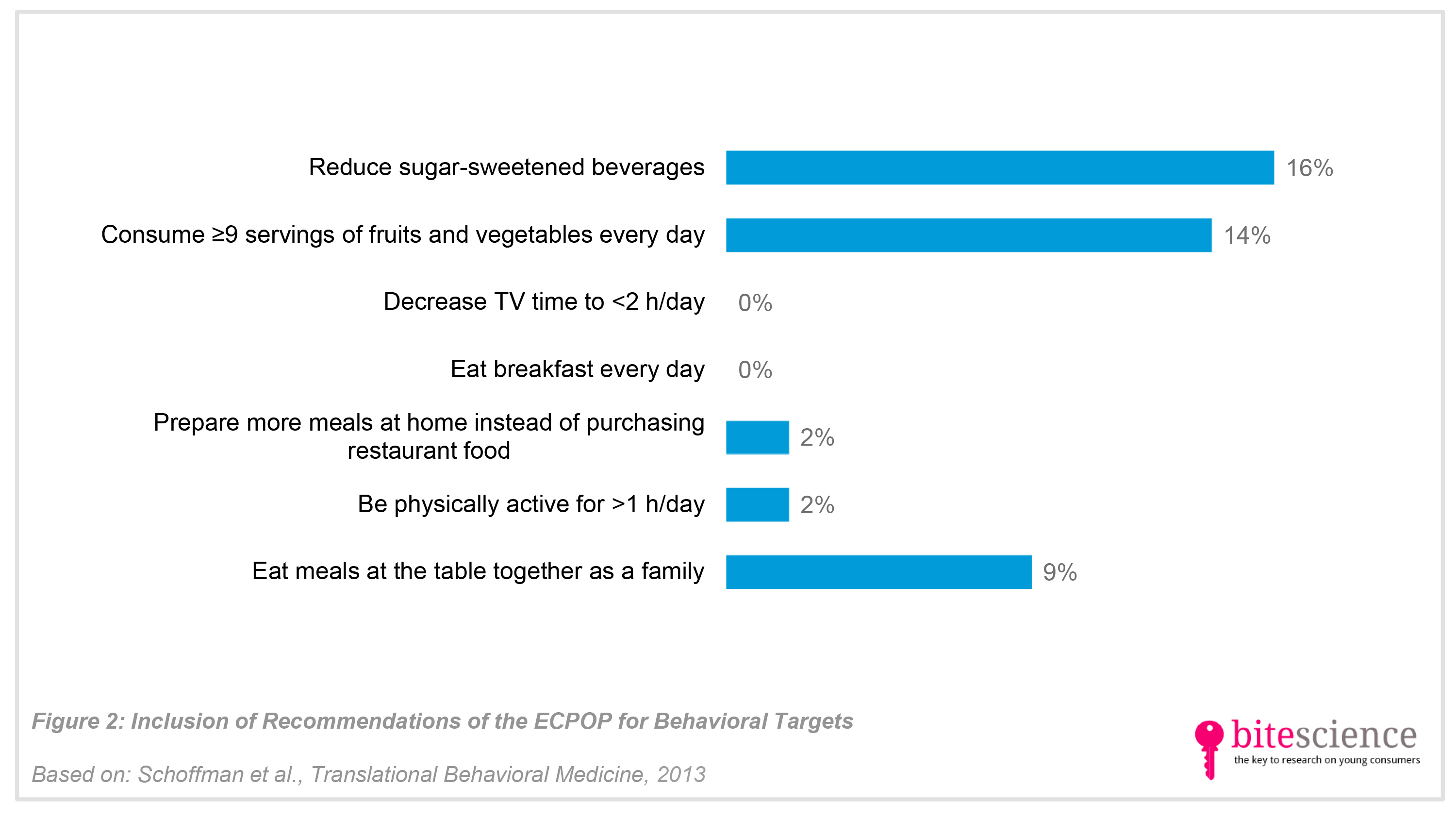
The (Unreached) Potential of Health Apps
With the rise of childhood obesity, health apps that stimulate children to eat healthy and be active come in very handy. However, a Translational Behavioral Medicine study states that existing health apps don’t reach their full potential. The researchers compared the strategies and focus of the 57 health apps available in the iTunes Store with the recommendations given by the Expert Committee for Pediatric Obesity Prevention's (ECPOP) for the prevention and treatment of pediatric obesity. It turns out that most reviewed health apps (targeting children under the age of 18 and focusing on healthy eating and/or physical activity) lacked the recommended strategies and goals given by the expert committee.
Take aways
- Apps that promote healthy eating and physical activity among kids and teens (<18 years) are widely available in the iTunes Store.
- However, most lack the recommended strategies (e.g., involvement of the family) and recommended goals (e.g., increasing fruit and vegetable consumption) of the Expert Committee for Pediatric Obesity Prevention's (ECPOP).
- It may be wise for health app developers to put effort in implementing the strategies and goals set by the ECPOP, in order to reach their full potential.
Study information
The question?
The study addressed three questions:
- What kind of health apps are available for children and teens under the age of 18?
- Can those apps be classified as games?
- To what extent do these mobile apps promote the strategies and behavioral targets of the ECPOP?
Who?
A total of 57 iTunes apps (language: English) that targeted children and teens under the age of 18, and that focused on weight loss, healthy eating, and/or physical activity
Where?
United States
How?
The researchers first searched for existing health apps via a listing of available apps on the iTunes store (June 2012). Within the health/fitness and education categories several search terms were used (e.g., kids, teen, exercise, physical activity, weight loss). The Google search engine was used as well to make sure all the existing health apps were found. The 57 remaining apps that fit the inclusion criteria (English language, targeting children and teens under the age of 18, focusing on weight loss, healthy eating and/or physical activity) were analyzed on the focus of the app (healthy eating, physical activity or both), and game classification (whether the app met the criteria of McGonigal for a game, such as having a goal, rules and feedback). The health apps were also analyzed on the inclusion of the recommendations of the 2007 Expert Committee for Pediatric Obesity Prevention's (ECPOP). This committee was made of representatives from different national health care organizations (e.g., American Medical Association, Centers for Disease Prevention and Control). Their recommendations for the prevention and treatment of pediatric obesity were based on clinical practice experiences and evidence-based research. In the Facts & Findings section the recommendations are discussed.
Facts and findings
- Of the 57 iTunes apps, 52% promoted healthy eating, 35% promoted physical activity, and 12% promoted both.
- 56% of the health apps were classified as games, and 16% connected users through social media (mostly by providing a link to the app's own Facebook page).
- Overall, only 39% of the reviewed apps was based on the recommendations of the ECPOP:
- Of the eight recommended strategies, the most frequently used were: setting goals/limits, involvement of the family, and the combination of different behavioral changes, such as promoting physical activity and healthy diets (see Figure 1).
- Of the seven recommended behavioral targets, the most frequently used were: reducing sugar-sweetened beverage, increasing fruit and vegetable consumption, and promoting eating meals at the table together as a family (see Figure 2).
- It must be mentioned though, that on average only 1 of the 15 recommendations (i.e., 8 strategies, and 7 behavioral targets) was promoted per health app. This implies that the health apps available in the iTunes Store do not reach their full potential.
- Fun fact: The apps HyperAnt, Ideserve, and Smash Your Food scored the best with using respectively 6, 5, and 4 of the ECPOP recommendations..

